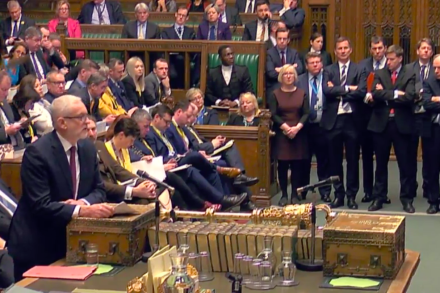Corbyn racks up another lacklustre PMQs
If a Prime Minister’s Questions before a Budget is rather lacklustre, then this is normally easily excused as being the Leader of the Opposition not putting as much prep as usual into a session that no-one will watch. But while today’s performance from Jeremy Corbyn was indeed lacklustre, it wasn’t any different from his offerings over the past few months. The Labour leader decided to focus on the lot of women in this country, given it was International Women’s Day at the weekend. He started with what seemed a pretty reasonable opener, which was demanding sick pay for those on zero hours contracts, particularly care workers who will need to




















